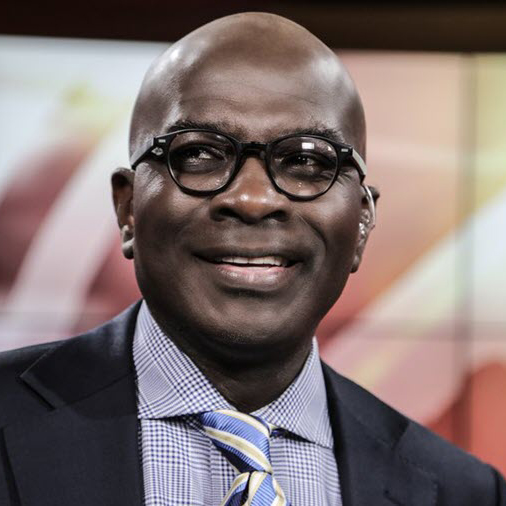Guest Blog: Court’s JSA Ruling Boosts Minority, Conservative Voices

The smarter way to stay on top of broadcasting and cable industry. Sign up below
You are now subscribed
Your newsletter sign-up was successful
To those who don’t know—and most outside of the media industry have little familiarity with this—there has been a tragedy of the commons going on for a couple of decades now that has ultimately resulted in the elimination of diverse voices in media. The tragedy of the commons is belied by the seeming proliferation of minority and conservative media personalities on television. However, the shift away from diversity of viewpoint is taking place at a much more subtle and fundamental level.
This week’s ruling by the U.S. Court of Appeals for the Third Circuit striking down the FCC’s attempt to limit the use of joint sales agreements as a means of financing minority broadcast ownership makes all of this relevant. Before considering the ruling’s consequences, however, it is important to understand the context.
Related: D.C. Weighs In on FCC JSA Smackdown
The shift away from diverse political viewpoints started around the late 1990s, as internet and broadband companies started to vie for telecommunication frequency spectrum against the television and radio industries. Traditional telecommunications carriers like AT&T, Sprint and Verizon began to consolidate, merging with smaller carriers and diversifying their businesses into cable and internet services. They had a distinct advantage over traditional mass media companies because they had a wire into the home—rather than an over-the-air, one-way signal—which enabled them to deliver higher signal quality for content, telephone services, and high-speed internet data bundles, which broadcast could not.
Traditional broadcasters were forced to consolidate in response to the cost pressure put on advertising and other revenue sources by the merging cable industries. Small, local TV and radio companies eventually morphed into larger, regional and national groups to take advantage of economies of scale that would permit them to survive in the new competitive environment.
Related: Conservative Pundit ‘Moderates’ Approach
The FCC and federal government owns the nation’s broadcast spectrum and are supposed to allocate its use in a manner that enhances the “public interest.” The definition of public interest has been subject to debate in a number of contexts, but one of the hotly contested issues is whether minority ownership of the media promotes the public interest by enhancing “viewpoint diversity.” The loaded term has been bandied about but has primarily been used as a political fig leaf by liberal regimes to give out gifts to their minority supporters. In theory, ownership by people of diverse backgrounds supports the public interest. In practice, however, such opportunities are rarely realized, and when they are, the so-called minorities selected usually have the same “viewpoints” as proponents of the rule.
The smarter way to stay on top of broadcasting and cable industry. Sign up below
That is to say, minorities who represent conservative views, notwithstanding they advance the government’s “public interest” goal of expanding diversity, are dismissed to the back of the bus. As the largest minority owner of television broadcast stations in the U.S.—I own seven broadcast licenses, and the second largest owns three—I was subjected to “arbitrary and capricious” treatment by the FCC in attempting to acquire financing for my stations. The lines drawn were distinctly political, but also complicated by the fact the FCC is in the middle of a major spectrum reallocation that will take spectrum away from broadcast owners and assign it to wireless carriers (at a huge profit to the federal government).
All of which brings us to the appeals court ruling this week in a case in which my company, Howard Stirk Holdings, LLC, was the lead petitioner. We pursued this action because JSAs are one of the few tools minority broadcasters like me had to obtain financing and operate successfully in the highly competitive media market. I had been able to use JSAs to obtain financing in buying my first two stations, but in 2014 the FCC ended that by setting the conditions for allowing JSAs out of reach for small players like me. That is why my company sued the FCC and challenged its actions as arbitrary, and noting the FCC had made no public interest determination, as the law requires, before enacting such limits and cutting off the financing life-line that enabled me to advance diversity in every way and compete.
The court’s ruling was incredibly surprising given the extreme amount of political pressure being exerted by the Obama Administration to reallocate spectrum to wireless carriers. Not only does this ruling enable broadcasters like me to own spectrum that the government would prefer to reallocate elsewhere, but it also helps to preserve a kind of viewpoint diversity that the Obama administration was trying to suppress in denying black conservatives a voice.
The FCC was also ordered by the court to conduct a thorough review of all of its’ broadcast ownership rules as part of a long-delayed “quadrennial review”—which the FCC has declined to conduct for over a decade. The Third Circuit’s ruling has the unintended effect of forcing the FCC to deal with two fundamental issues affecting the broadcast and media industries at once—something it should have done on its own long ago. While conducting its spectrum auction—which it expects will net north of $30 billion—the FCC will also have to simultaneously review all of its media ownership rules on a highly accelerated basis, or risk having all the rules thrown out by the Court of Appeals.
This alignment of incentives is something the FCC sought strenuously to avoid. It wanted to address viewpoint diversity in broadcasting as a separate issue from the corporate control of the wireless industry—in which the three dominant players now control more than 80% of the spectrum allocated to cable and wireless. But because of the evolving landscape, both the technical and qualitative distinctions between broadcast, cable and wireless, have drastically changed since the FCC rules were originally enacted. Enhancing the public interest will require a thorough review of all of these industries, as well as establishing a new framework for allocating the public resources in a responsible—rather than expedient—fashion.
While it may not have been the Third Circuit’s intention to open a bee’s hive of issues, the timing could not have been more perfect. The FCC’s shortsighted attempt to limit minority voices in media backfired. Now it will have to face scrutiny on a host of issues that will be certain to reveal political biases in its administration of the very rules that it has fought hard to sweep under the rug.
Armstrong Williams is manager and sole owner of Howard Stirk Holdings I & II Broadcast Television Stations and executive editor of American CurrentSee, an online magazine.
Armstrong Williams is a principal owner of the Baltimore Sun and manager/sole owner of Howard Stirk Holdings I & II Broadcast Television Stations.

